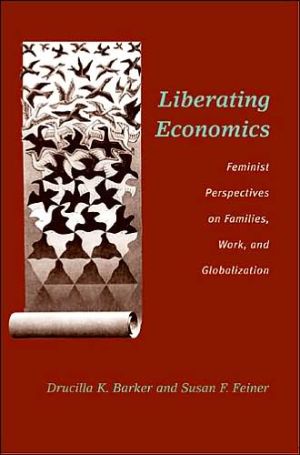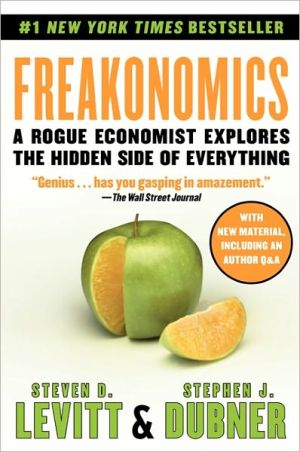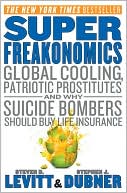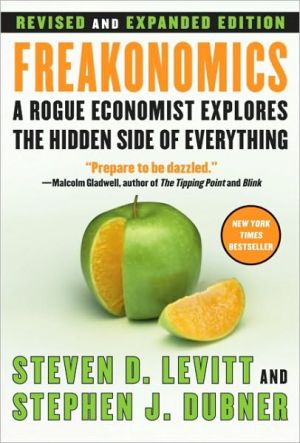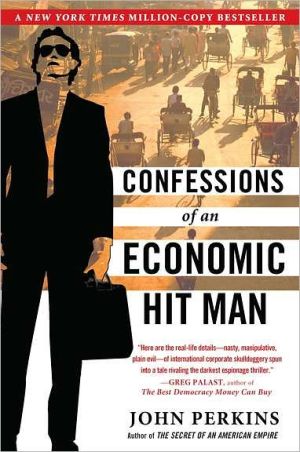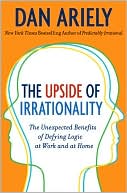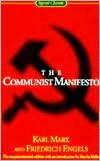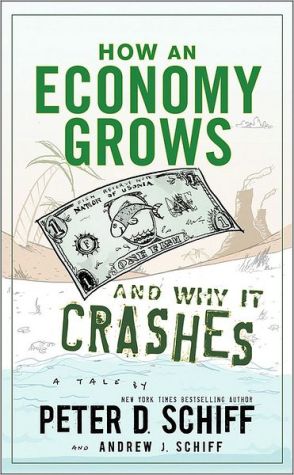Liberating Economics: Feminist Perspectives on Families, Work, and Globalization
Liberating Economics draws on central concepts from women's studies scholarship to construct a feminist understanding of the economic roles of families, caring labor, motherhood, paid and unpaid labor, poverty, the feminization of labor, and the consequences of globalization. Barker and Feiner consistently recognize the importance of social location -- gender, race, class, sexual identity, and nationality -- in economic processes shaping the home, paid employment, market relations, and the...
Search in google:
Liberating Economics\ Feminist Perspectives on Families, Work, and Globalization \ \ \ By Drucilla K. Barker Susan F. Feiner \ The University Of Michigan Press \ Copyright © 2004 \ University of Michigan\ All right reserved.\ \ ISBN: 978-0-472-09843-9 \ \ \ \ \ Chapter One "Economics," She Wrote \ It is the best of times; it is the worst of times. Today, women's contribution to economic well-being is more than matched by the injustices that accompany their work. Virtually all international organizations agree that gender equity is necessary for economic growth and prosperity, yet inequality and exploitation haunt the lives of women and girls everywhere. Today, many women do "men's" work, but the invisible, devalued, and poorly paid work remains "women's" work. In the poor nations women and girls suffer disproportionately from malnutrition and disease, and even in the most prosperous nations women encounter glass ceilings and sticky floors. Women, regardless of geographic location, are especially prone to hardship and poverty.\ Unpaid household labor is now recognized as crucial to every economy, yet all over the world unpaid domestic work is still the province of women. Women and men now engage in paid labor in nearly the same proportions, but the responsibility for child and dependent care still falls mainly to women. Women add more to household income than ever before, so women's total work time exceeds men's by at least two hours per day. The unprecedented growth in career opportunities for educated, privileged women is accompanied by rapidly increasing numbers of poor women employed as domestics, caring for the children of the privileged. Globally, women-owned businesses are increasing at a rapid rate; female entrepreneurs are, however, disproportionately located in the informal sector, beyond the reach of labor organizations that could mitigate the harsh exploitation of the poorest of the poor. The formal, political power of women has reached an historic high, and still 70 percent of the world's 1.3 billion poor living on less than one U.S. dollar per day are women. It is a season of hope; it is a season of despair.\ Feminist economists explain these facts without romanticizing the existing unequal distribution of resources between women and men, without assuming the naturalness of women's subordinate social status, and without rationalizing the oppression and exploitation of the world's least privileged peoples. Reigning interpretations of economic inequality-by gender, race, ethnicity, religion, and nation-trace social inequalities back to different individual choices, abilities, and resources. Analyses that follow this logic are, in our view, thinly disguised apologies for the existing social hierarchies of gender, class, privilege, and power. Feminist economists reject such essentialist justifications and instead root economic inequality in social processes of inclusion, valorization, and representation.\ Our feminist perspective allows us to reframe the criteria for evaluating economic performance. Five criteria are especially important. First, participants in an economic system should insist on a system that is fair. Fairness as we see it is a question that goes beyond opportunity to consider outcomes. For example, when people follow the economic rules-work responsibly at their jobs and contribute to the community through tax payments and volunteer work-will they reap the benefits or will race, class, and gender block their full participation in the economy? Likewise, will people who do not have access to market incomes be able to enjoy a socially acceptable standard of living? Second, we ask whether an economic system is likely to provide an improved quality of life over time. Here we explicitly include in our vision of the quality of life such criteria as leisure, health, education, and the conditions of work so that this metric goes far beyond the traditional market basket of goods and services as a measure of well-being.\ A third and closely connected dimension of the economic system involves economic security. Can participants in the economy expect to be able to support themselves and their families? Or, as is the case in the United States today, will the economic security of the many be sacrificed by policies that benefit the few? A fourth concern recognizes the potential wastefulness of economic activity. We can no longer ignore the extent to which production and consumption may waste human and nonhuman resources. Our last question is perhaps the most contentious: To what extent does the economy provide opportunities for work that are meaningful? Is it written in stone that most jobs must involve hateful activities that drain the creativity and humanity out of the people who do them? Or can we envision an economy where work validates the inherent dignity of every human being?\ These are not new questions in economics or in any other inquiry into social conditions. This book does not set out answers to these questions but, rather, shows how feminist economists frame them. In so doing, this book demonstrates how a feminist analysis liberates economics.\ What Is Economics?\ Wait a minute, feminism and economics? Isn't a price just a price? A market just a market? Don't men and women feel the ups and downs of economic activity equally, whether they are black or white, straight or gay? Won't a change in interest rates affect everyone the same way, regardless of gender? To all these questions feminist economists answer, "no." Gender, like race, ethnicity, class, nation, and other markers of social location, is central to our understanding of economics and economic systems. The categories of economic analysis do not express timeless truths. Economic categories and concepts, like the categories and concepts of every knowledge project, are embedded in social contexts and connected to processes of social differentiation.\ But what is economics? Let us begin to explain this by asking a simple question: How do we get our daily bread? As individuals we only produce a tiny fraction of the commodities we consume each day. We buy the rest. How is it that ordinary goods and services like bread, soap, and electricity are available for us to purchase, providing we have the cash? A humble loaf of bread, like a bar of soap or a kilowatt of electricity, requires the coordinated activities of thousands of people, in dozens of occupations, scattered around the globe. Farmers grow wheat expecting to sell to millers. Millers process flour to sell to bakers. Bakers produce bread to fill orders from large supermarket chains. And grocers sell us bread so we can make sandwiches for ourselves, our families, and our friends.\ Our daily bread depends upon all of these activities, plus those involved in manufacturing farm equipment, transportation, newspaper advertising, and supermarket hiring. Each of these must take place at approximately the right time, in roughly the correct sequence, and in sufficient quantity to keep grocery store shelves stocked. As we widen the scope of our vision to encompass the enormous array of commodities available today-education and health; DVDs and cell phones; art and music; childcare and eldercare; Barbies, books, and bombs-the complexity of modern industrial economies becomes apparent.\ The activities necessary to maintain human life take place over and over and over again. What motivates individuals and institutions to undertake these activities? As Adam Smith so famously observed, the farmer, the miller, and the grocer do not act out of altruism or interest in your well-being. In market economies many goods and services are produced in anticipation of profits that may be realized when commodities are sold. The focus on commodity production, sales, and profits has been central to economics since its inception. But what happens to all those loaves of bread once they are sold? Economists since Adam Smith have ignored this question.\ Adam Smith, writing in the late eighteenth century, saw that the processes of market exchange worked to coordinate the diverse activities of people who neither knew each other nor knew what the others wanted. Smith argued that self-interest would ensure that individuals would produce the goods society wanted. These insights continue to be valid. Farmers won't grow wheat, automakers won't produce cars, and accounting firms won't hire accountants unless they have a reasonable expectation that they can sell what they've produced. This is what Smith meant when he imagined that the economy was guided "as though by an invisible hand" to serve the social good. The idea that the division of labor works in concert with a self-adjusting market was Smith's brilliant insight. What Smith was unable to see was that much of what happens in markets relies on the vast amount of unpaid labor that takes place in the home.\ We agree with feminist economist Julie Nelson that economics is the study of provisioning. This points us to the importance of the production and redistribution that take place in families. Families share their resources with each other, including those members of the family who do not work for pay. Thus, feminist economists extend the economic horizon to analyze the economic activities that take place in households and families without assuming that these activities parallel behaviors found in markets.\ Although mainstream economics has evolved since Smith's day, his focus on markets and the mutually beneficial nature of voluntary exchange remains a cornerstone of what is known today as neoclassical economics. For most economists, neoclassical economics is the standard against which all other schools are compared. Neoclassical economists start from premises about the state of nature and the nature of human beings. Nature is parsimonious, so resources are scarce. Human wants, in contrast, are unlimited. These assumptions about the human and nonhuman world allow neoclassical economists to define economics as the science of choice: the study of how societies allocate scarce resources among alternative uses. In this view economics is an objective, gender-neutral, and value-free science that articulates the laws of economics in the same way that physics articulates the laws of physical phenomena.\ Neoclassical economics is defined by its reliance on rational choice theory. By rational choice economists mean that individuals can (and do) arrange their preferences (their likes and dislikes) logically and consistently. Then, given their preferences, and the constraints of time and income, individuals make choices that maximize their self-interest (utility). Given this specification of rational choice, the mathematics of constrained optimization can be used to solve many problems, all of which take the same logical form: economic agents maximize their well-being by engaging in activities up to the point where marginal benefits just equal marginal costs. The economics literature is rife with examples: childbearing, marriage, surrogacy, prostitution, drug addiction, and even suicide are said to result from utility-maximizing behavior.\ Aside from being simplistic, this framework assumes away personal, familial, and communitarian responsibilities. Individuals exist solely in the sphere of exchange where they contractually interact if and when such interactions promote their self-interest. This rational economic agent is commonly referred to as Homo economicus, or Economic Man. For mainstream economists, Homo economicus is defined absent gender, race, class, or any other markers of social location. Indeed, neoclassical economists see the universality of rational economic agents as the triumph of their paradigm.\ Feminist economists, applying the insights of feminist criticism in literature, psychology, and philosophy of science, argue that just as there is no universal human subject, there is no universal economic agent. Assuming universal economic rationality erases the deep differences among upper-class Egyptian housewives, homeless women in U.S. urban centers, women in refugee camps, and preteen sex workers in South Asia. Neoclassical economics insists on seeing each as essentially the same: they are all rational economic agents seeking to maximize their utility within the dual constraints of time and income. The feminist alternative holds that gender, race, ethnicity, and nation are analytical categories, not mere descriptors attached to rational agents who are in all other regards identical.\ Feminists in economics ask questions about the production of individuals: Where do these so-called rational agents come from? Do they spring from the ground like Hobbesian mushroom men? Is all economic activity, absent a gun to the head, or a state commissar's directive, voluntary and mutually advantageous? If so, conflict, power, and exploitation are ruled out a priori. In contrast, feminist economics interrogates these questions.\ The two major alternatives to the neoclassical tradition are Marxian and institutional economics. One of the remarkable similarities of these paradigms is that their founders (Karl Marx and Friedrich Engels on the one hand and Thorstein Veblen on the other) did initially frame issues central to women's social status in ways that are surprisingly consistent with contemporary feminist analysis. In the 1884 monograph The Origins of the Family, Private Property, and the State, Engels argued that women's subordinate economic position derived from the social organization of production rather than biology. Veblen's classic 1899 work, The Theory of the Leisure Class, offered similar arguments concerning women's social and economic status. But the feminist insights of the founders of these two heterodox economic traditions were pushed aside as economics became an academic discipline and as the mathematical, promarket ideology of neoclassicism pushed out other practitioners. It was not until the 1960s and 1970s, with the rise of second-wave feminism, that Marxist and institutionalist economists began to rediscover the relevance of gender.\ Feminism and Economics\ One might suppose that when social science research-whether in economics, history, sociology, or psychology-focuses on issues relating to women, it is feminist. But this is not the case. Social analyses that are distinctively feminist are not only, and not necessarily, about women. Feminist social science questions existing relationships between women and men and among diverse groups of women. Feminists do not assume that these relationships are in any sense essential, optimal, or natural. Rejecting traditional views of women and men shifts our perspective, and from this angle of vision social relations can be seen in new ways. Producing this perspective is the central objective of the feminist economics project.\ The foundation for feminist economics was built during the 1970s by scholars working in three different theoretical traditions: neoclassical economics, institutionalist economics, and Marxist political economy. Feminist work in the neoclassical and institutionalist traditions focused on questions about women's labor force participation, the gender wage gap, and occupational segregation. This scholarship took the position that women's participation in the paid labor force, on equal footing with men, was the key to women's emancipation and empowerment.\ Feminist work in the Marxist political economy tradition criticized traditional Marxist analyses of women and noted that under patriarchy women faced gender oppression regardless of their class status (although, of course, wealth and income accorded some women more privilege than others) or the dominant mode of production (socialist, capitalist, or feudal). Gender oppression was a result of the sexual division of labor-which under capitalism meant the division between paid and unpaid, productive and reproductive, and domestic and paid labor.\ With few exceptions, women's access to resources and opportunities is less than men's, and gender inequality is ubiquitous. We recognize, however, that differences among women arise from hierarchies of race, class, ethnicity, nationality, and heterosexism. These differences create systems of privilege that are antithetical to feminist aspirations for social justice. The tension between talking about the interests of women as a group and recognizing important differences among them is as acute in feminist economics as it is in all other branches of feminism. Women occupy multiple and often contradictory social locations that challenge simple notion of common interest. Indeed, this book explores the many different ways that economic privileges are distributed and analyzes the significance of gender in the distribution of and access to resources.\ (Continues...)\ \ \ \ \ Excerpted from Liberating Economics by Drucilla K. Barker Susan F. Feiner\ Copyright © 2004 by University of Michigan . Excerpted by permission.\ All rights reserved. No part of this excerpt may be reproduced or reprinted without permission in writing from the publisher.\ Excerpts are provided by Dial-A-Book Inc. solely for the personal use of visitors to this web site.\ \
Contents List of Figures....................ix\ List of Tables....................xi\ Preface and Acknowledgments....................xiii\ Chapter 1. "Economics," She Wrote....................1\ Chapter 2. Family Matters: Reproducing the Gender Division of Labor....................19\ Chapter 3. Love's Labors-Care's Costs....................41\ Chapter 4. Women, Work, and National Policies....................56\ Chapter 5. Women and Poverty in the Industrialized Countries....................75\ Chapter 6. Globalization Is a Feminist Issue....................95\ Chapter 7. Dickens Redux: Globalization and the Informal Economy....................118\ Chapter 8. The Liberated Economy....................128\ Notes....................145\ Select Bibliography....................167\ Index....................181
